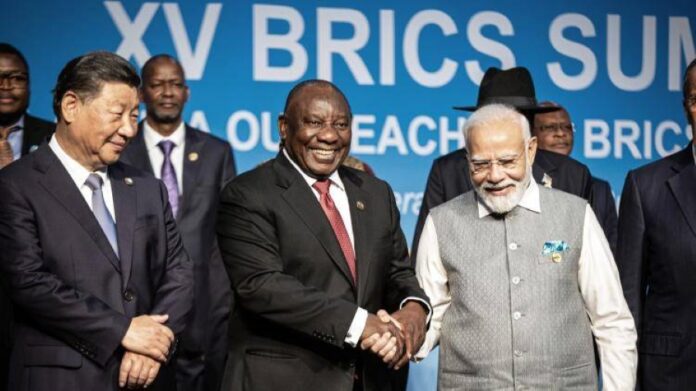In the wake of South Africa’s 2024 general election, which resulted in a multiparty government, the country’s constitution stands as its most formidable asset amidst severe socioeconomic and political challenges. South Africa faces high unemployment, rampant crime, ineffective policing, and a dysfunctional public service. Despite the 1996 constitution’s remarkable provisions, its full potential has often been undermined. Francois Venter, who played a role in drafting South Africa’s 1993 transitional and 1996 final constitutions, argues that applying the constitution effectively could provide solutions to these pressing issues.
The Constitution’s Potential and Its Implementation Challenges
The 1996 constitution is widely esteemed for its forward-thinking framework, designed to foster broad cooperation and reconstruction of the nation. It envisions a government that is effective, transparent, accountable, and coherent, as outlined in Chapter 3’s principles of “cooperative government.” Despite this, the promise of cooperative reconstruction has been marred by instances of governance failure, notably during President Jacob Zuma’s tenure (2009-2018). Zuma’s administration saw a weakening of parliamentary oversight, which contributed to significant state capture.
Initially, the 1993 transitional constitution proposed a system with two executive deputy presidents to preside over cabinet meetings, promoting consensus. However, the 1996 final constitution consolidated both the executive and legislative powers in the presidency, a move that concentrated authority and allowed subsequent presidents to exert near-total control over the cabinet and legislative processes.
The principles enshrined in the constitution, such as those governing public administration in Section 195, aimed to uphold a professional civil service and prevent corruption. Additionally, the principles of participatory democracy in Sections 59, 72, and 118 were intended to ensure public involvement in lawmaking. Yet, these principles have often been sidelined, leading to political favoritism and ineffective public administration.
Remedies for Effective Governance
To address these issues, the new multiparty government must negotiate a robust coalition agreement that aligns with constitutional values. This agreement should outline how parties will cooperate, ensuring adherence to constitutional principles while allowing for practical governance. The coalition pact should define how the constitution will be implemented and may include provisions for cabinet autonomy and mechanisms to resolve policy deadlocks.
The coalition agreement should emphasize:
- Effective Public Administration: Ending political favoritism in state appointments and enhancing accountability are crucial for restoring public service functionality.
- Abandoning Ideological Rigidity: A diverse country like South Africa requires a departure from narrow ideological frameworks and slogans. Coalition partners must focus on pragmatic solutions rather than ideological purity.
- Promoting Participatory Democracy: Introducing citizens’ assemblies could revitalize democratic engagement. These assemblies, based on objective criteria rather than political elections, can facilitate genuine public consultation and participation in governance.
Prioritizing Reconstruction and Cooperation
To govern effectively, the unity government should adopt a clear and inclusive approach, such as “cooperative reconstruction.” This banner would embody the necessity for both cooperation among parties and the reconstruction of a nation in crisis. Key areas of focus should include:
- Reforming Public Administration: Addressing corruption and political favoritism.
- Adopting Pragmatic Ideologies: Moving beyond traditional catchphrases to practical governance strategies.
- Enhancing Participatory Democracy: Implementing mechanisms like citizens’ assemblies to improve public engagement in governance.
The enduring strength of South Africa’s constitution, coupled with a well-structured coalition pact, provides a foundation for addressing the nation’s crises. By harnessing the constitutional principles of cooperative governance and participatory democracy, the new government can work towards a more effective and inclusive administration, capable of navigating the complex challenges facing South Africa today.
Disclosure: Francois Venter has previously received funding from the South African National Research Foundation and the Alexander von Humboldt-Stiftung for research in constitutional law. The Conversation is funded by several academic institutions and strategic partners, including the Bill & Melinda Gates Foundation.
















 The African Research (AR) Index is a comprehensive scholarly directory and database focused explicitly on journal publishers that publish and disseminate African research.
The African Research (AR) Index is a comprehensive scholarly directory and database focused explicitly on journal publishers that publish and disseminate African research.

